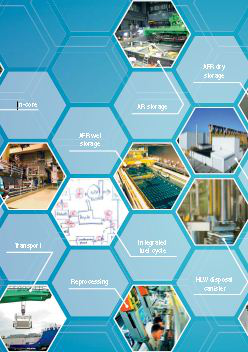Speaker
Mr
Matthew Gordon
(U.S. Nuclear Regulatory Commission (USNRC))
Description
The U.S. Nuclear Regulatory Commission (USNRC) risk-informs a variety of operating and new nuclear reactor regulatory activities. This practice is rooted in probabilistic risk assessment (PRA), a highly detailed, quantitative method. Significant resources are required to develop PRA models for reactors, however. The USNRC’s Division of Spent Fuel Management (SFM) is developing a qualitative/semi-quantitative risk-informed framework for interim dry spent fuel storage. The purpose of this framework is to better enable the USNRC to enhance the efficiency and effectiveness of its dry storage regulatory activities, including actions to improve guidance, streamline casework activities, help assess modifications to dry storage facility designs and operations, and evaluate requests for exemptions to the regulations while maintaining adequate safety and security. The framework is intended to be flexible enough to incorporate risk insights from pilot PRAs, human reliability analyses, observations from operating experience, and expert opinion. Different types of risk assessments were considered for risk-informing interim dry spent fuel storage. The challenges of creating an initial framework will be discussed, as dry storage relies significantly on passive systems, and traditional PRAs have been developed for and applied to active systems, e.g., operating reactors. The proposed framework is intended to risk inform the first licensing period for dry storage, including loading, transfer and storage operations and the associated regulatory activities. It is expected the framework will be expanded to include transportation and longer interim storage periods. As part of the proposed framework, the elements of defense-in-depth as well as appropriate metrics for risk evaluation will be defined.
Country/ int. organization
U.S. Nuclear Regulatory Commission (USNRC)
Primary authors
Mr
Matthew Gordon
(U.S. Nuclear Regulatory Commission (USNRC))
Mr
Michel Call
(U.S. Nuclear Regulatory Commission (USNRC))
Co-author
Mr
Meraj Rahimi
(U.S. Nuclear Regulatory Commission (USNRC))

